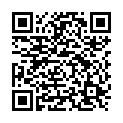|
|
|
| Module code: BSP-24.325 |
|
|
- |
|
3 |
| Semester: 4 |
| Mandatory course: no |
Language of instruction:
German |
Assessment:
B
[updated 05.11.2025]
|
BSP-24.325 (P322-0612) Social work and early childhood, Bachelor, ASPO 01.10.2019
, semester 4, optional course
|
|
The total student study time for this course is 90 hours.
|
Recommended prerequisites (modules):
None.
|
Recommended as prerequisite for:
|
Module coordinator:
Studienleitung |
Lecturer: Studienleitung
[updated 01.10.2025]
|
Learning outcomes:
[updated 05.11.2025]
|
Module content:
Lecturer Dr. Bärbel Heidtmann
Module description:
In this seminar, we will explore the question of what aging means biologically and how it happens.
Students will learn about aging as a physiological process based on scientific research and gain knowledge about the physical, mental, and psychological changes that older people experience and what this means for their perception, behavior, and ability to act in their living environment.
Practical exercises will give students a small little taste of what aging feels like, bringing them closer to the lives and experiences of older people. In addition to self-awareness, the goal of these exercises is to better understand and assess the special needs and requirements, but also the resources, of older people.
Beyond normal physiological aging, this is particularly important when dealing with sick people and their relatives. Many older people have a serious illness, and multimorbidity is not uncommon. Therefore, this seminar will also cover the basics of age-related diseases, such as dementia, Parkinson´s disease, (and/or others, as agreed with students).
In this seminar, students will acquire a fundamental knowledge and understanding of physiological and pathological changes in old age. This is useful for anyone who may work with older people in their field of work. It can help reevaluate clients´ reactions and one’s own behavior on a biological and medical basis. All this will enable students to identfy age-specific circumstances at an early stage, and thus ultimately enable them to act empathetically, understandingly, and appropriately.
Module topics:
• Physiological aging: Physical, mental, and psychological changes in old age and the special needs and requirements of older people
• What does old age feel like? Exercises for self-awareness
• Pathologies in old age: Selected age-related clinical conditions
• Deriving actions when dealing with elderly/sick people in the context of social work
• Reports by the students
[updated 05.11.2025]
|
Recommended or required reading:
[updated 05.11.2025]
|


